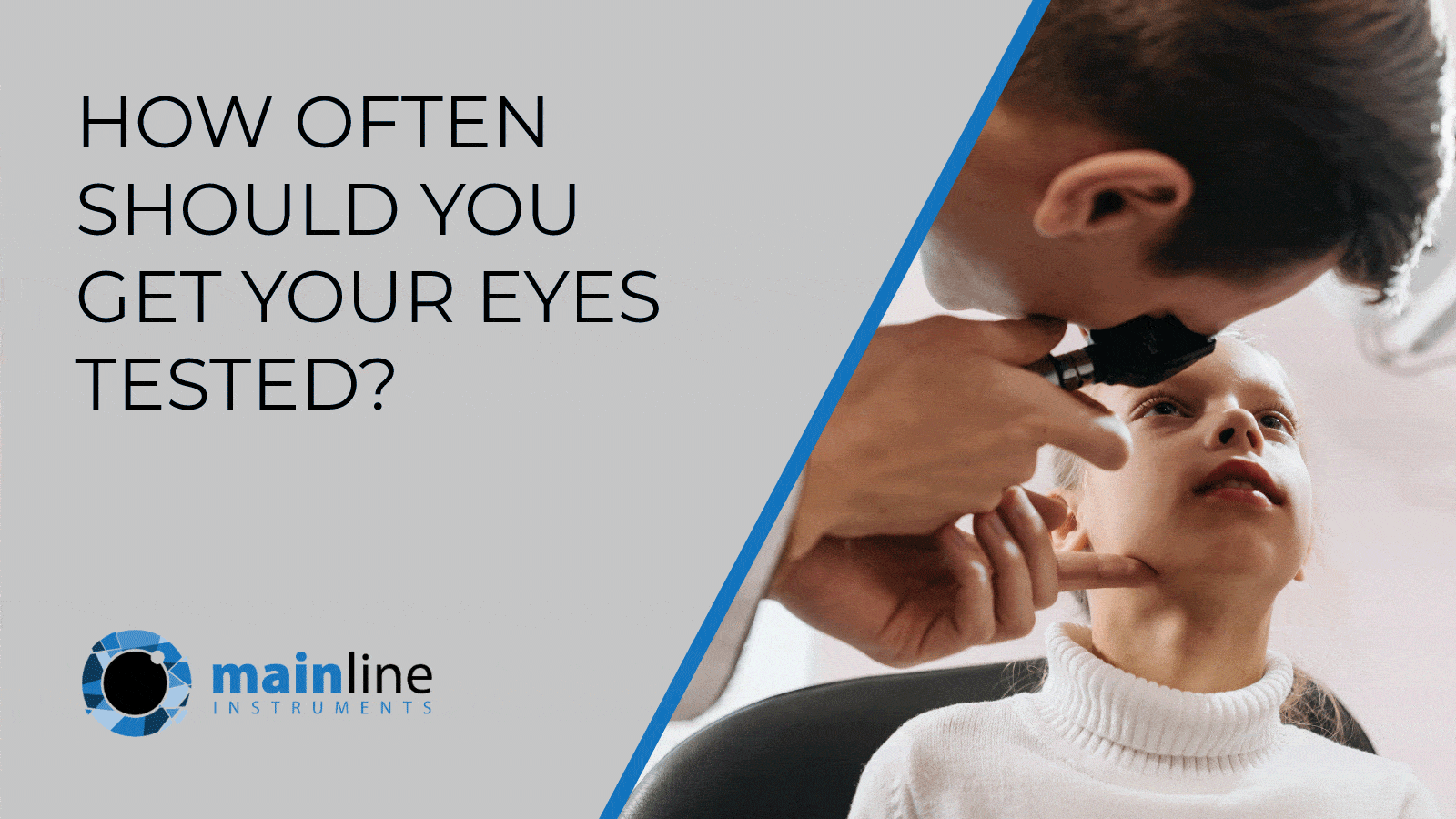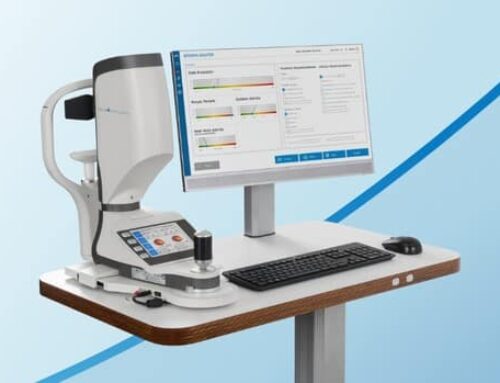Eye tests are important to general health as an experienced optician will be able to spot any eye issues or anomalies and recommend the right course of action before a problem escalates.
An eye test can also reveal other health concerns that patients may have otherwise been unaware of, such as abnormal blood pressure, thyroid disease, autoimmune disorder, cancer, hypertension, diabetes and even high cholesterol.
According to The College of Optometrists the average adult should have their eyes tested once every 2 years[1]. This can vary for different ages or if the patient has any underlying or pre-existing eye or health conditions.
Children between the ages of 7 and 16 years old with no vision anomalies should be seen once a year. Children under 7 years old, with vision anomalies or corrected refractive errors should be have their eyes tested every 6 months.
Those over the age of 16, with or without diabetes who are part of diabetic retinopathy monitoring scheme need to be seen every 2 years.
If a patient has diabetes and is not part of diabetic retinopathy monitoring scheme need to be seen more frequently, every year.
If you are a contact lens wearer, by law you are required to have a check up every 12 months to continue purchasing lenses and ensure they are the best fit comfort for your eyes. The optician will be able to help with your wearing schedule, how often you replace your lenses, and your eye health if anything changes with the lenses.
References
[1] https://guidance.college-optometrists.org/guidance-contents/knowledge-skills-and-performance-domain/the-routine-eye-examination/frequency-of-eye-examinations/







